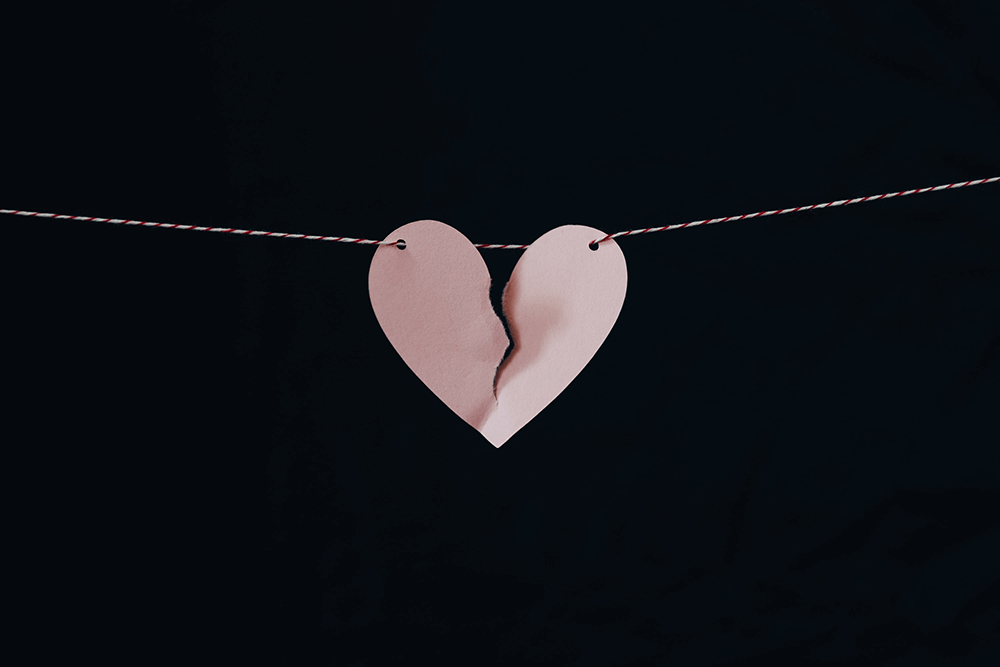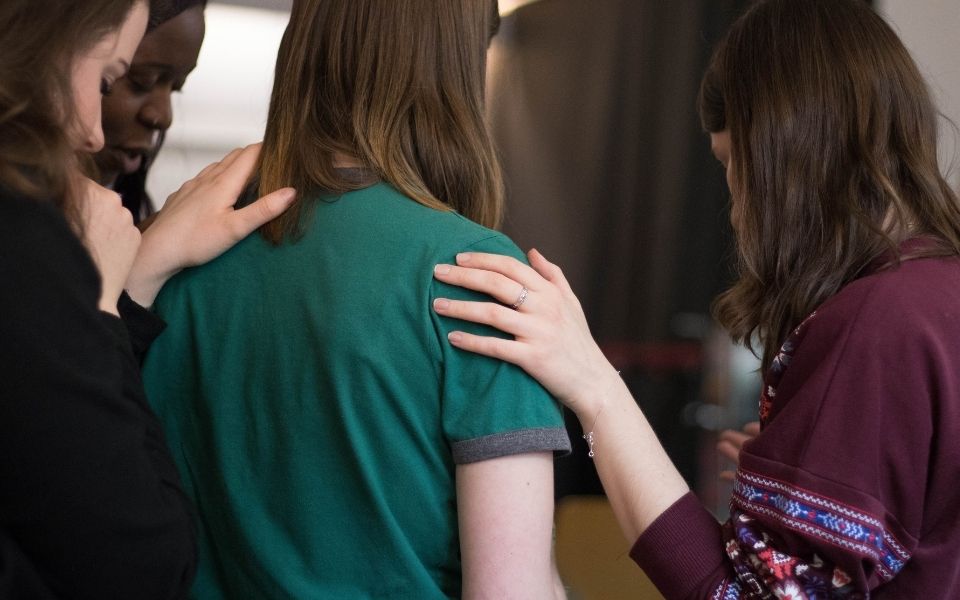In our journey through life, we’re certain to come across an array of experiences that challenge us, sharpen our character, and forge our resilience. Amongst these experiences, the pain inflicted upon us by others—whether intentionally or inadvertently—can leave indelible marks on our psyche. It’s a testament to the complexity of human relationships and the inevitability of suffering in our shared existence. The query, then, isn’t whether we’ll face such trials, but how we will effectively reply to them after they arise.
As we navigate the labyrinth of emotions that emerge within the wake of being hurt, it’s crucial to develop strategies that not only promote healing but additionally foster personal growth. This begins with an unflinching acknowledgment of our emotions and an understanding of the context wherein they emerge. By cultivating resilience, empathy, and self-compassion, we will transform our pain right into a catalyst for positive change, allowing us to emerge stronger and more self-aware than before.
In the next exploration, we’ll delve into the intricacies of processing and responding to the hurt attributable to others, with a specific concentrate on the powerful role that guided meditation can play on this endeavor. Through this journey, we may also introduce Declutter The Mind, a guided meditation app designed to empower individuals to foster emotional well-being and achieve greater clarity within the midst of life’s challenges.
Identifying and Accepting the Hurt
A vital first step in addressing the pain inflicted by others is to acknowledge and accept the emotions that arise in response to such events. Our emotions, often complex and multifaceted, can function invaluable guides as we navigate the murky waters of interpersonal conflict. By observing these emotions with curiosity and non-judgment, we gain insight into our own inner landscape and create the inspiration for real healing.
Recognizing the pain inflicted by others
After we experience hurt, it is important to acknowledge the source of our pain and the impact it has had on us. This means of recognition may be difficult, because it requires us to confront our vulnerability and, at times, the stark reality of others’ actions. Nonetheless, by facing these emotions head-on, we will begin to disentangle the threads of our experience and develop a clearer understanding of the situation.
The importance of acknowledging emotions without judgment
As we discover the emotions that arise in response to being hurt, it is important to avoid falling into the trap of self-judgment. It’s all too easy to develop into ensnared in a cycle of self-blame, dismissing our emotions as irrational or undeserved. As a substitute, we must approach our emotions with an attitude of acceptance, embracing the complete spectrum of our emotional experience as a natural and valid aspect of our human condition.
The role of mindfulness in observing and accepting our emotional reactions
Mindfulness, the practice of non-judgmental awareness, can function a robust tool in our quest to discover and accept the emotions that accompany our experiences of hurt. By cultivating a mindful stance, we will observe our emotions as they arise, noticing their ebb and flow without becoming entangled of their narrative. In doing so, we create the space obligatory for real introspection and healing, allowing us to disengage from harmful thought patterns and move forward with greater clarity and self-awareness.
Assessing the Situation

Once now we have recognized and accepted the emotions that accompany our hurt, the following step is to objectively assess the situation at hand. This involves evaluating the context wherein the hurtful event took place, in addition to the intentions and motivations of the person involved. By gaining a deeper understanding of those aspects, we will make informed decisions about how best to reply and move forward.
Differentiating between intentional and unintentional harm
Not all acts of harm are created equal; it is important to discern whether the one that hurt us acted with malicious intent or if the pain they caused was unintentional. This distinction may be crucial in determining the suitable plan of action and in understanding the degree of private responsibility that needs to be assigned to the opposite party. By considering the intentions of those that have hurt us, we will approach the situation with a balanced perspective and avoid falling prey to unproductive emotions equivalent to resentment and bitterness.
Evaluating the context and relationship with the person involved
The context wherein the hurtful event occurred, in addition to our relationship with the person involved, can provide worthwhile insight into how best to handle the situation. Aspects equivalent to the duration and nature of our relationship, previous patterns of behavior, and the general dynamics at play might help us determine whether the difficulty is an isolated incident or part of a bigger pattern. By taking these elements under consideration, we will develop a nuanced understanding of the situation and make more informed decisions about the right way to proceed.
Deciding whether communication or confrontation is obligatory
Armed with a clearer understanding of the context and intentions behind the hurtful event, we will determine whether communication or confrontation is obligatory. In some cases, open and honest dialogue would be the handiest solution to address the difficulty, fostering mutual understanding and growth. In other instances, a more assertive approach could also be warranted, particularly if there may be a history of harmful behavior or if the person involved has displayed a consistent lack of empathy or remorse. Ultimately, the choice to speak or confront should be guided by our own needs and well-being, in addition to a real desire for resolution and healing.
Developing Compassion and Empathy

As we attempt to navigate the complex terrain of hurtful experiences, it is important to cultivate a way of compassion and empathy, each for ourselves and the one that has caused us pain. This empathic approach, which acknowledges the intricate interplay of mental health, personal history, and circumstance, might help us to avoid exacerbating the situation and promote an environment conducive to healing and growth.
Cultivating empathy for the one that hurt us
When confronted with hurtful words or actions, our instinctual response could also be to retaliate or withdraw. Nonetheless, it’s crucial to acknowledge that the one that has caused us pain is probably going grappling with their very own emotional turmoil and challenges. By fostering empathy for his or her struggles, we will begin to see the situation from a broader perspective, acknowledging that their actions could also be more a mirrored image of their very own mental health and private history than a deliberate try to cause harm. This empathic understanding might help us avoid making the situation worse and, as an alternative, foster an environment of compassion and healing.
Understanding the foundation causes of their behavior
To totally develop empathy for the one that has hurt us, it’s important to delve deeper into the aspects that will have contributed to their behavior. By examining the foundation causes of their actions, we gain insight into the complex web of emotions, beliefs, and experiences that will have driven them to cause us pain. This understanding might help us to separate their hurtful words or actions from their intrinsic value as a human being, allowing us to approach the situation with greater wisdom and compassion.
As we cultivate empathy for the one that has hurt us, it is important to acknowledge the universal nature of suffering. Hurt feelings, disappointment, and emotional pain are inevitable points of the human experience, and we’re all certain by our shared vulnerability within the face of those challenges. By recognizing this common thread, we will develop a way of solidarity and understanding that transcends the boundaries of our individual experiences, fostering self-love and compassion for ourselves and others.
In embracing the interconnectedness of our suffering, we create the space for true healing and growth, allowing us to transcend the pain of our hurtful encounters and emerge stronger, more empathetic, and more attuned to the complexity of our shared human experience.
Turning to Guided Meditation

As we grapple with the complexities of hurt feelings and seek to construct a greater life within the wake of emotional pain, we may find ourselves looking for tools to navigate the turbulent waters of our own thoughts. Guided meditation, a practice that harnesses the facility of mindfulness and self-awareness, can offer a worthwhile lifeline in these difficult moments. By turning our attention inward, we will learn to acknowledge and transform the thought patterns that could be exacerbating our pain, ultimately fostering a way of confidence and well-being.
The ability of meditation in managing emotional pain
Meditation has long been celebrated for its ability to cultivate mental clarity, emotional stability, and a profound sense of inner peace. As we confront the hurt attributable to others, these qualities develop into especially invaluable, providing us with the tools to disengage from the thoughts and emotions that could be making us feel worse. Through regular meditation practice, we will learn to look at our thoughts and feelings without judgment, allowing us to raised understand the foundation causes of our emotional pain and develop strategies for managing it effectively.
Practicing forgiveness and self-compassion through meditation
Within the context of hurt feelings and emotional pain, meditation can function a robust vehicle for cultivating forgiveness and self-compassion. By turning our focus inward and connecting with our innermost selves, we will begin to unravel the tangled web of emotions that surrounds our hurtful experiences, ultimately discovering a spot of profound self-acceptance and love. Through this practice, we will learn to forgive each ourselves and the one that has hurt us, fostering a way of empathy and understanding that transcends the confines of our own pain.
Introducing Declutter The Mind as a guided meditation app
To help on this journey of self-discovery and healing, Declutter The Mind offers a comprehensive guided meditation app designed to empower individuals to attain greater emotional well-being and mental clarity. With its diverse range of meditation practices, expert guidance, and accessible format, Declutter The Mind provides users with the tools they should feel confident of their ability to administer their emotional pain and foster a way of lasting inner peace.
By incorporating guided meditation into our every day lives, we will transform our relationship with our hurt feelings and create a foundation for a more compassionate, empathetic, and assured way of living.
Setting Boundaries and Protecting Ourselves

While cultivating empathy and compassion for many who have caused us pain is a vital aspect of the healing process, it’s equally necessary to determine healthy boundaries and protect our own well-being. Whether we feel hurt by an in depth friend, member of the family, or acquaintance, learning to set limits and prioritize our emotional health can empower us to navigate the complexities of interpersonal relationships with greater resilience and self-assurance.
Recognizing our emotional and physical boundaries
As a way to maintain a balanced and healthy approach to relationships, it’s crucial to develop a transparent understanding of our emotional and physical boundaries. These boundaries, which vary from individual to individual, function essential markers of our personal comfort zones and help us to take care of a way of autonomy and self-respect in our interactions with others. By recognizing and honoring our own boundaries, we will be certain that we prioritize our well-being, even within the face of the pain attributable to individuals who hurt us.
Establishing healthy limits in relationships
Once now we have identified our personal boundaries, the following step is to effectively communicate and implement these limits in our relationships. This may occasionally involve expressing our needs and expectations openly, or it might require us to make difficult decisions concerning the nature and extent of our interactions with those that have hurt us. No matter the precise approach, establishing healthy limits serves as an important technique of safeguarding our emotional health and promoting an environment wherein we will stay positive and thrive.
The importance of self-care and emotional well-being
As we navigate the challenges of hurt feelings and strained relationships, it is important to prioritize self-care and spend money on our own emotional well-being. This may occasionally involve in search of support from family members, engaging in activities that bring us joy and achievement, or developing practices that help us to cultivate inner resilience and strength. By prioritizing self-care, we will create a powerful foundation from which to confront the pain attributable to others, ultimately empowering us to remain positive and maintain a way of balance and harmony in our lives.
In establishing boundaries and prioritizing self-care, we will protect ourselves from the possibly harmful effects of hurtful relationships and create an area wherein we will heal, grow, and thrive.
Searching for Support and Community

Within the face of hurtful situations and the emotional turmoil they will generate, it is important to acknowledge the worth of in search of support and connecting with others who share similar experiences. Whether we feel offended, sad, or overwhelmed by the actions of people that hurt us, engaging with a community of understanding individuals can provide a way of solace, camaraderie, and healing.
The worth of connecting with others who’ve experienced similar pain
After we are confronted with painful experiences, it will possibly be easy to feel isolated and as if we’re the one ones grappling with such emotions. Nonetheless, connecting with others who’ve faced similar hurtful situations can offer a much-needed sense of perspective and solidarity. By sharing our experiences, we will gain insight into our own emotions, learn from the wisdom of others, and feel less alone in our struggle.
Constructing a support system to assist us heal and grow
Developing a powerful support system is an integral a part of the healing process. This network of friends, relations, and professionals can provide a secure space for us to specific our emotions, seek guidance, and find reassurance after we feel bad or overwhelmed by hurtful experiences. By cultivating a support system, we will be certain that now we have the resources and encouragement we want to maneuver through difficult times with resilience and charm.
Learning from the wisdom of others
As we connect with others who’ve faced similar challenges, we will glean worthwhile insights and lessons from their experiences. This wisdom, borne from the crucible of pain and growth, can function a robust guide as we navigate our own healing journey. By learning from the experiences of others, we will develop a deeper understanding of our emotions, our reactions, and essentially the most effective strategies for moving forward within the wake of hurtful situations.
In in search of support and community, we will bolster our resilience, foster a way of connection, and cultivate the inner resources obligatory to confront the challenges posed by hurtful experiences, ultimately empowering us to emerge stronger, wiser, and more compassionate than before.
Conclusion
In conclusion, when confronted with the painful emotions and complexities that arise when people hurt us or we’re put in a hurtful situation, it’s crucial to acknowledge that these hurtful situations can function potent catalysts for private growth and self-discovery. By approaching the challenges posed by someone hurting our feelings with curiosity, compassion, and openness, we will transform our pain into worthwhile lessons and experiences that ultimately empower us to be ok with ourselves and the progress now we have made. As we learn to navigate the emotional landscape of hurt with wisdom, resilience, and charm, we will rise above the pain and embrace a lifetime of greater understanding, achievement, and well-being.






